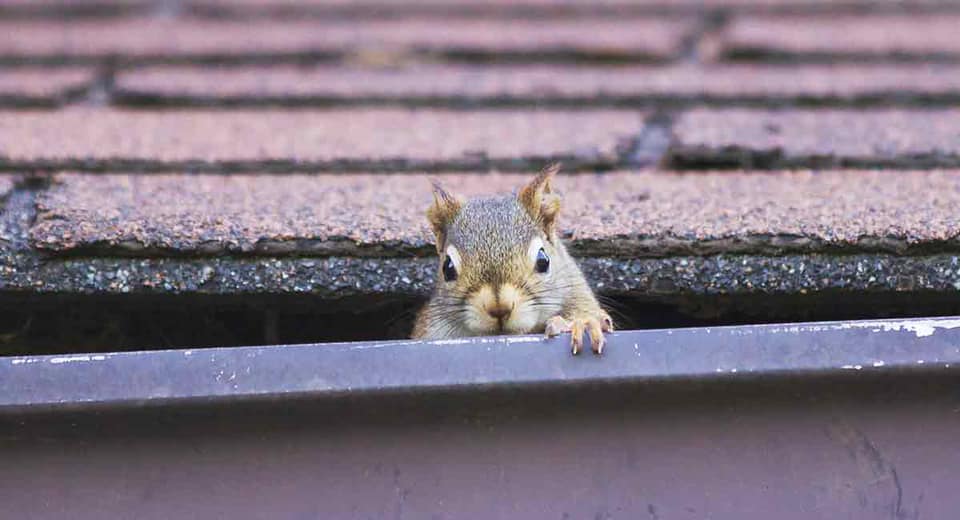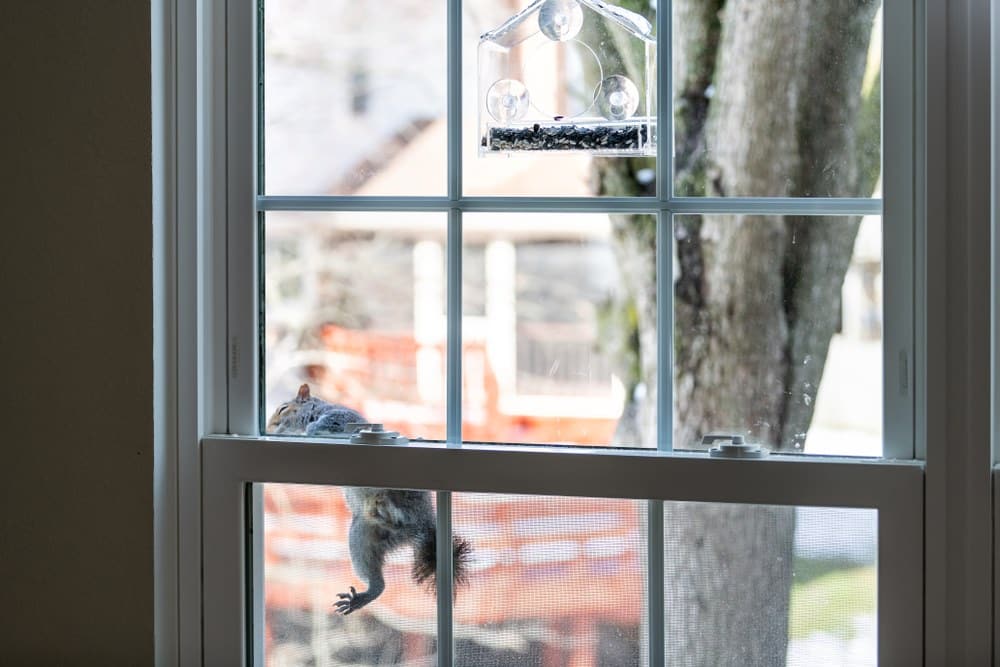
The squirrels romping around your yard and favorite park are cute and fun to watch. Living in urban, suburban, and rural areas, they are mostly harmless. When they take up residence in your attic, chimney, or crawl space, your health can be at risk. There are squirrel diseases that can be transmitted to people through contact with their urine, feces, contaminated water, and a bite or scratch.
Salmonella, Lyme disease, ringworm, tularemia, leptospirosis, and rabies are diseases squirrels can carry. In addition, squirrels host parasites such as ticks, fleas, and mites. These diseases can be serious. If you have a squirrel infestation, Critter Control has the expertise and experience to humanely and efficiently get rid of squirrels.
Need Help with Squirrel infestation?
Find a Critter Control near you.
What Diseases Do Squirrels Have?
No matter how common it is to live amongst these critters, there are risks to getting too close. Understanding the health risks you and your family can be exposed to is important.
Six squirrel diseases that people can get:
● Salmonellosis: Salmonella is a bacteria found in squirrel droppings. Symptoms typically appear 12 to 72 hours after exposure and can include diarrhea, abdominal cramps, fever, nausea, vomiting, and headache. In some cases, complications such as dehydration, sepsis, and meningitis may occur.
● Lyme disease: Spread by the ticks squirrels carry, symptoms include nerve pain, stiffness, and inflammation of the brain or spinal cord.
● Ringworm: This highly contagious fungal infection usually spreads through direct or indirect contact with an infected person or animal. An infected squirrel in your attic can contaminate a variety of objects and surfaces like floors, towels, furniture, and clothing. Ringworm symptoms include a red, scaly, ring-shaped rash. Ringworm is itchy and can become blistered and peel.
● Tularemia: This is an infectious disease that attacks the skin, eyes, lymph nodes, and lungs. Common symptoms include fever, chills, headache, ulcers, fatigue, swollen lymph nodes, and muscle aches.
● Leptospirosis: This bacterial infection causes fever, headache, vomiting, jaundice, and rash and is contracted through contact with the urine of infected animals or by eating or drinking contaminated food or water.
● Rabies: Squirrels can carry the rabies virus, which causes inflammation of the brain and spinal cord. Though rare, sometimes squirrels pass the rabies virus to humans via biting or scratching. Symptoms include agitation, aggression, seizures, fever, and muscle twitching.
Many of these diseases are fatal when left untreated, so individuals should monitor for symptoms and seek medical attention after coming in contact with squirrel urine or feces. Breathing in particles of the animal’s excrement is the most common way diseases are transmitted.
Squirrel Parasites

Squirrels can be hosts to other pests, such as fleas, ticks, and mites. These pests can affect people if they come in close contact with squirrels or their nests.
Ticks can spread diseases like:
● Lyme disease: Fever, headaches, fatigue, and muscle and joint aches are common symptoms of Lyme disease. When contracted, there is often a bull’s eye rash that appears at the tick bite.
● Rocky Mountain Spotted Fever: This illness displays symptoms such as a high fever that can last for weeks, a severe headache, fatigue, nausea, a rash on arms, legs, and ankles, and swelling around the eyes and on the backs of hands.
● Tularemia: Symptoms of tularemia include fever, chills, muscle tenderness, sore throat, stomach pain and bleeding, nausea, and lack of energy.
Flea-borne diseases include:
● Plague: While rare, plague causes fever, chills, muscle aches, sore throat, vomiting, and painful lymph nodes.
● Flea-borne Typhus: Common symptoms of this disease include fever, headache, muscle aches, rash, and nausea.
● Cat Scratch Disease: A red, blister-like sore appears at the site of the injury. Other symptoms include fever, fatigue, swollen lymph nodes, and overall discomfort.
Preventing Squirrel Diseases
The best way to prevent the spread of disease is to avoid contact with squirrels and their droppings. We also encourage wearing gloves and masks in the case of an infestation to reduce the possibility of contracting illnesses.
Squirrel control and exclusion are key to avoiding contact with squirrels and their droppings. If you have squirrels in your attic, it’s best to call Critter Control to humanely remove them. Critter Control will also provide you with an exclusion plan that includes capping chimneys and vents and sealing gaps in your home around windows, doors, eaves, and other areas of your roof. Yard maintenance is also important, including trimming tree branches that overhang your roof, keeping pet food and water indoors, and removing fallen fruits and nuts from your yard.
Get Professional Squirrel Control
While squirrels look cute, never attempt to handle or pick up a squirrel. They are still wild animals that pose a danger to you, your family, and your pets. Their bites and scratches hurt and could potentially spread a disease.
Contact a professional wildlife service for squirrel removal help if you’ve identified a squirrel problem on your property.
Critter Control technicians are trained in safe and humane squirrel pest control. Once the squirrel control is complete, Critter Control technicians apply ectoparasite and sanitization agents, which clean the areas by exterminating fleas, ticks, and mites and disinfecting anything contaminated by squirrels.
Contact Critter Control if you believe a squirrel is living in your home.
Get them out.
Keep them out.®
Experiencing a wildlife or pest issue? We can help! Complete this form and your local Critter Control® office will contact you to assist.
- How to Get Rid of Squirrels
- Squirrels Entering Homes
- Squirrels in Attics
- Squirrels in Chimneys
- Squirrels on Roofs & in Soffits
- Squirrels in Walls
- Squirrels in Ventilation
- Squirrels in Gutters
- Squirrels in Crawl Spaces
- Squirrels in Yards or Gardens
- Squirrels in Trees
- Squirrels Digging Holes in the Ground
- How to Identify Squirrel Sounds
- Squirrel Tracks
- Squirrel Droppings
- Squirrel Trapping
- Squirrel Repellents & Deterrents
- Squirrel Appearance & Identification
- Species & Types of Squirrels
- Squirrel Life Cycle
- Baby Squirrels
- Squirrel Nest
- Dead Squirrels
- Squirrel Diet
- Rabid Squirrels
- Do Squirrels Hibernate?
- Gray Squirrels
- Do Squirrels Bite?
- Squirrel Damage to Your House
- Squirrels vs. Rats
- Squirrels vs. Chipmunks